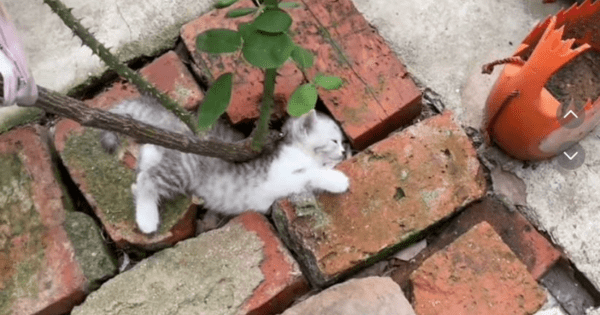In a quiet corner of the garden, under a thorny rose bush, a tiny kitten lay almost motionless. The kitten had fallen into one of the most dangerous places a young animal could find itself. The sharp thorns of the rose bush surrounded it, threatening it at every turn. It was clear that the little creature had been abandoned, left to face the harshness of nature without anyone to care for it.
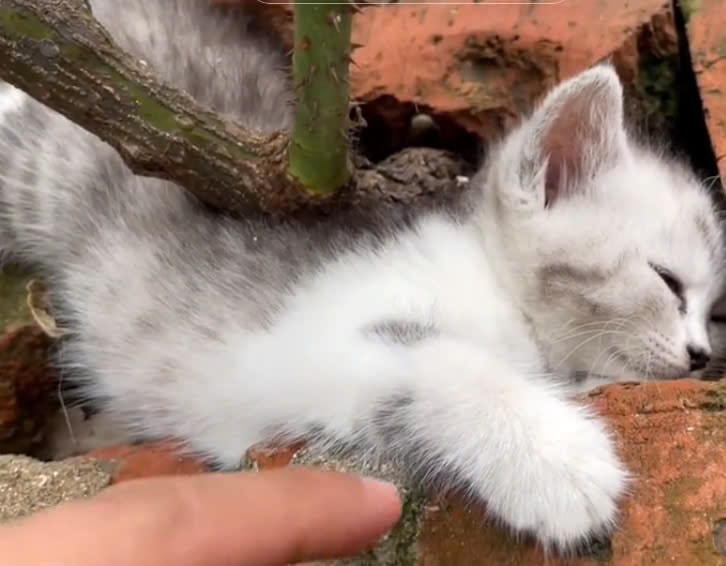
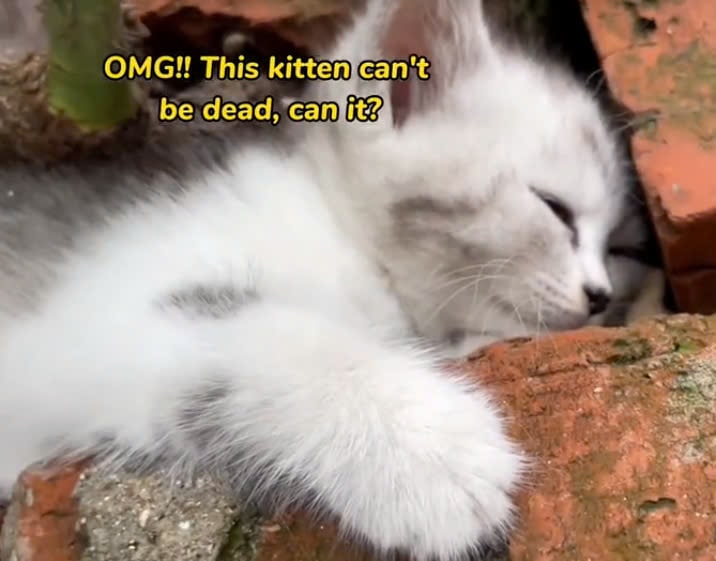
The cold nights and the long hunger and thirst had weakened the kitten. It lay flat, breathing weakly and barely able to move. Hunger had taken its toll on its small body, and dehydration had drained its last strength. The sharp thorns of the rose bush had scratched its skin, causing further pain. The kitten’s eyes, which should have been bright and curious, were now half-closed, clouded with fatigue and pain. Yet, despite its critical condition, there was still a faint heartbeat in its tiny chest – a fragile spark of life.
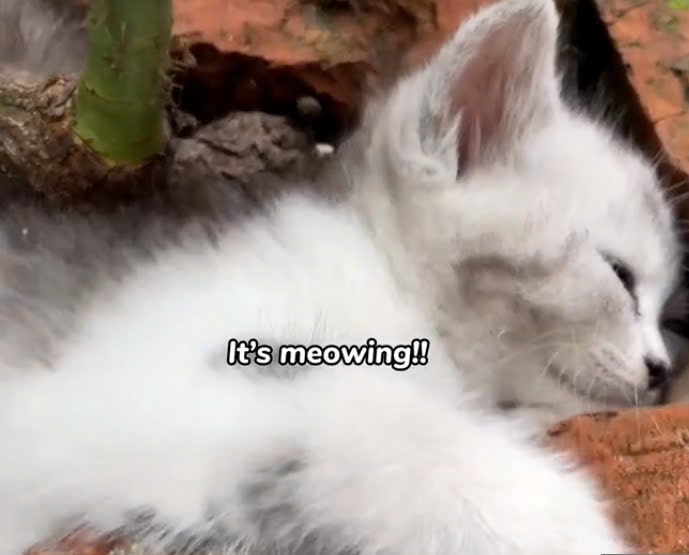
By chance, a passerby happened to be passing by the garden that day. As they gazed at the blooming roses, they heard a soft, almost inaudible meow. They stopped to listen more closely and realized that the sound was coming from beneath the rose bush. Bending down, they carefully pushed aside the thorns and were surprised to see the kitten lying there, barely moving. The image of the fragile, almost dying creature stirred something deep within them. Without hesitation, they knew that they had to act quickly to save this little life.
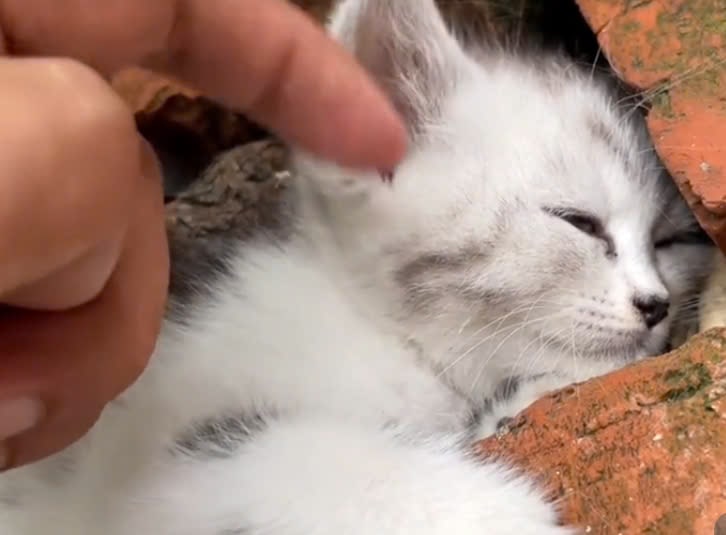
With gentle hands, the rescuer carefully lifted the kitten from the rose bush, mindful of the sharp thorns that had caused many injuries. The kitten, too weak to resist, lay peacefully in their arms. Its small body was cold to the touch, breathing heavily and weakly. The rescuer rushed inside, holding the cat tightly to his chest, hoping that the warmth of his body would revive it. Every moment was precious, and they knew that immediate care was essential.
Inside the house, they quickly wrapped the cat in a soft towel to keep it warm. The cat needed water and nutrients, but in its fragile state, feeding it too quickly could be dangerous. The rescuer, experienced in such sensitive situations, used a dropper to carefully feed the cat a little warm water mixed with electrolytes. The cat’s mouth moved weakly, trying to lick the liquid, and although the effort was small, it was still a positive sign. The rescuer continued to give the cat small amounts of water, keeping it warm and talking softly to the cat, hoping to bring some comfort.
Over the next few hours, the cat remained in critical condition, but it was alive. Its breathing, although still weak, became more regular and it began to respond slightly to the warmth and care it received. The rescuers understood that this was just the beginning of the battle. The cat needed full medical attention, so they quickly contacted a local veterinarian, who agreed to examine the cat immediately upon understanding the urgency of the situation.
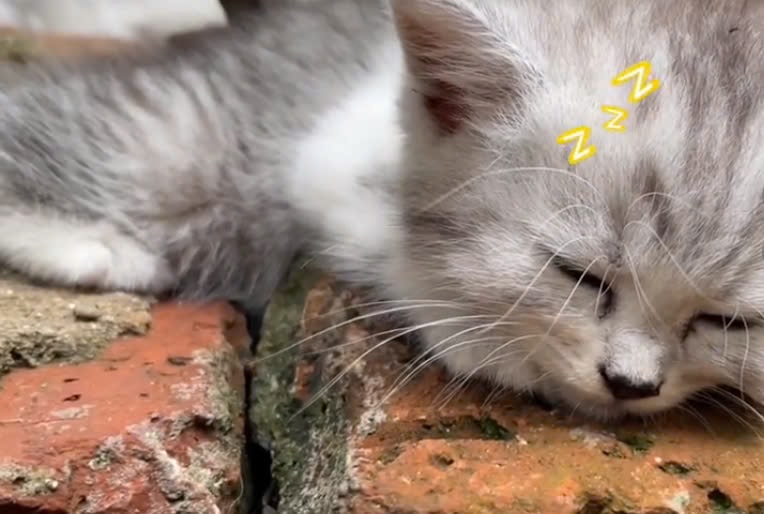
At the veterinary clinic, the doctor confirmed the rescuers’ concerns: the cat was severely malnourished and dehydrated, and had likely been abandoned for days. Its body temperature was very low and its immune system was compromised. The scratches from the rose bush, although small, could easily become infected in the cat’s weakened state. But despite the poor condition, the doctor reassured the rescuers that there was still hope. With proper care, the cat had a chance of survival.
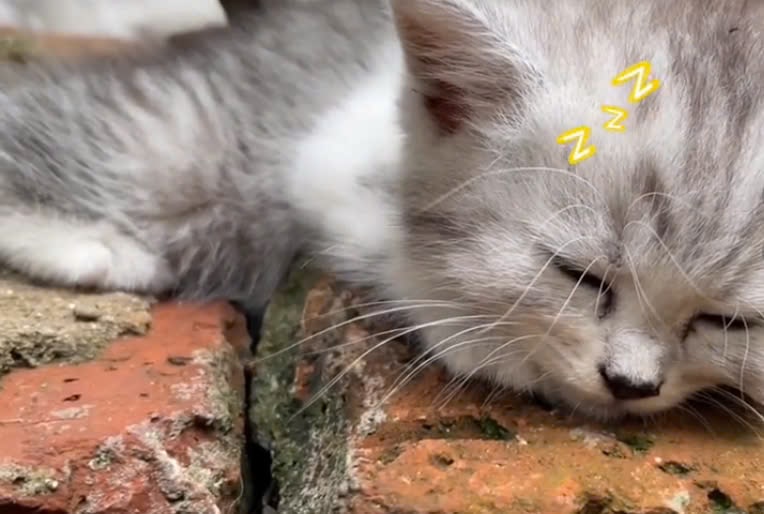
The cat was placed in an incubator to stabilize its body temperature, and the vet administered fluids to help rehydrate it. Over the next few days, the cat was closely monitored and fed a special formula for orphaned kittens, bit by bit. Each day brought small signs of improvement. The cat’s breathing became stronger and it began to pay more attention to its surroundings, although it was still too weak to move much. During this time, the rescuer made regular visits to the clinic to check on the cat’s progress. After a week of intensive care, the cat had made significant progress. Its once-sluggish eyes were now wide open, and it was beginning to gain weight. Although still small and frail, its vitality returned, and the cat began to move around more, eager to explore its surroundings.
